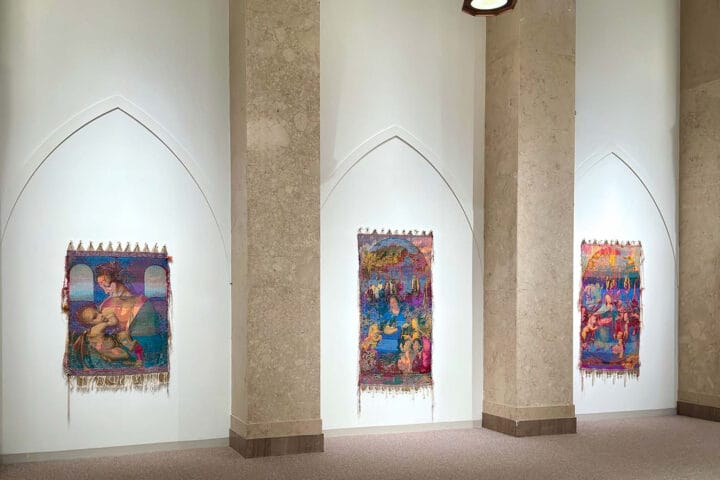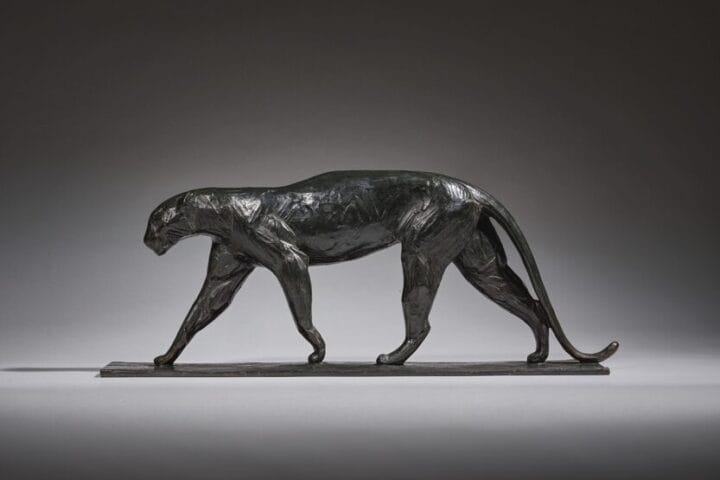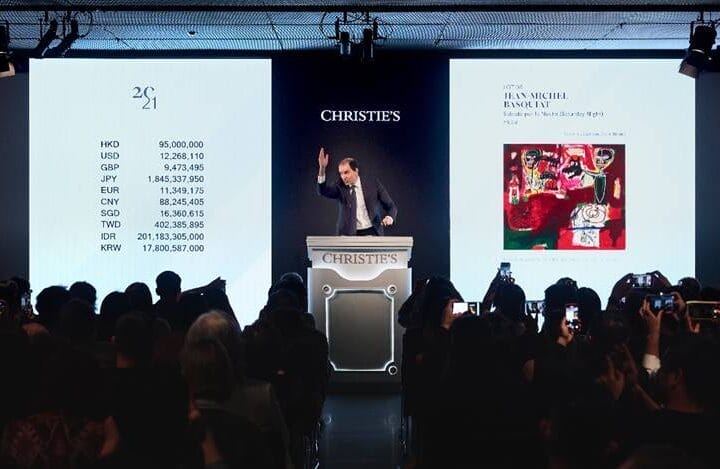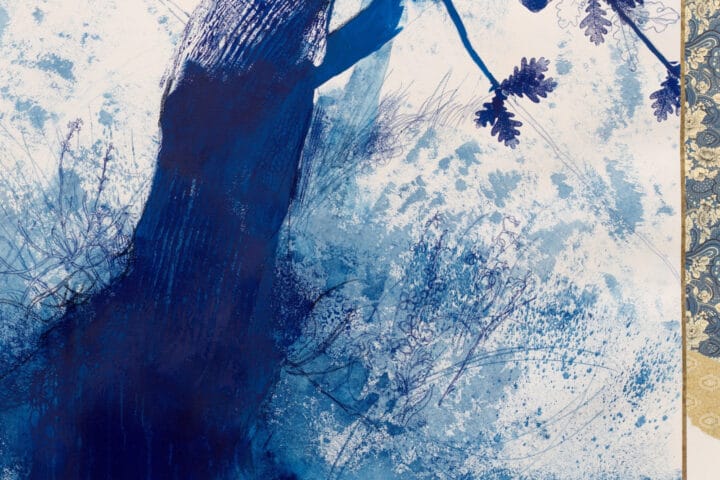“There is an immense reward to be found in that frozen forest. There the transfiguration of all living and inanimate forms occurs before our eyes, the gift of immortality a direct consequence of the surrender by each of us of our own physical and temporal identities.”
– JG Ballard, The Crystal World, 1966
Lisson Gallery presents its first solo exhibition by British painter Sarah Cunningham exploring psychological spaces and multifaceted landscapes that the artist composes within her layered and generative canvases. This new body of paintings – including a major triptych and large-scale works, alongside smaller panels – focusses on Cunningham’s abstract forays into kaleidoscopic environments and imagined forest clearings, which she constructs over time through layer after layer of gesture and radiating bursts of light, line and colour.
Cunningham (b.1993) pulls from a multitude of literary, art historical and personal references, adopting and dissolving these situations through vivid, expressionistic mark making. The exhibition takes its title from one such influence, JG Ballard’s 1966 science-fiction novel, The Crystal World, although her own crystalline scenes are structured from constantly shifting, penumbral planes and collaged fragments, leading viewers through the proscenium arch towards new worlds beyond. The earliest work also lends its title to the show: The Crystal Forest depicting a fractured vortex of earth, trees and sky, merging multiple viewpoints and testing the boundaries between human beings, nature and landscape.
Cunningham’s is not a single forest – although influenced by the woods around her hometown of Nottingham and those of Guna Yala in Panama, where she undertook a residency in 2018 – rather it represents a wider diversity of interconnecting ecosystems, species and even possible future forests. Time intervenes and splinters in the triptych at the centre of the exhibition, entitled I Will Look into Earth, with its central panel having been added as a last action, bringing immediacy, space and light to the scene, while pulling apart and reconfiguring its original, dualistic state. All works undergo Cunningham’s demanding process of layering, erasure, rebalancing and occasionally, wholesale destruction, as was the case both with Urchin Shelter, a painting brutally cut from a larger entity and re-stretched into its final form, or in another ocean-themed canvas, Oyster Catcher, flipped upside down to create bedrock from sky and to transform dappled sunlight into shoals of fish and tumbling crustaceans.
An improvisatory approach to materials also influences every fluid gesture and crystalline composition she makes, whether using cloth to drag and remove paint or by adding branches and other wooden extensions to brushes as a means to extend or alter her arm’s length, as in My Body is a Drowning City, which maps Cunningham’s figure through alternate horizontal and gravitational sweeps. Her unusual, nocturnal practice of working through the night further estranges her limbs and thoughts from any systematic, painterly movements, resulting in works that briefly dwell in darkness only to culminate in the arrival of the dawn chorus.
This is Sarah Cunningham’s first solo show in London after completing an MA in Painting at the Royal College of Art in 2022 and being presented in exhibitions in Vancouver, Berlin, Los Angeles, New York and Aspen.
Lisson Gallery
67 Lisson Street, London










